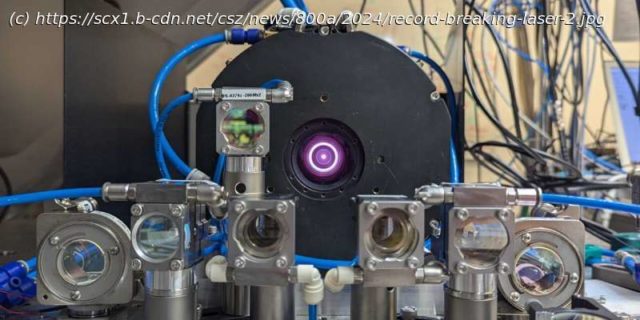The word laser usually conjures up an image of a strongly concentrated and continuous light beam. Lasers that produce such light are, in fact, very common and useful. However, science and industry often also require very short and strong pulses of laser light.
The word laser usually conjures up an image of a strongly concentrated and continuous light beam. Lasers that produce such light are, in fact, very common and useful. However, science and industry often also require very short and strong pulses of laser light.
These pulses can be used to machine materials or to create high harmonic frequencies up to X-rays, which can help to make extremely fast processes in the attosecond range (a billionth of a billionth of a second) visible.
A team of researchers at ETH Zurich led by Ursula Keller, professor at the Institute for Quantum Electronics, have now set a new record for such laser pulses: at 550 watts of average power they surpass the previous maximum by more than 50 percent, which makes them the strongest pulses ever created by a laser oscillator.
At the same time, they are extremely short—they last less than a picosecond, or a millionth of a millionth of a second—and exit the laser in a regular sequence at a high rate of five million pulses per second. The short pulses reach peak powers of 100 megawatts (which, in theory, would be enough to power 100.000 vacuum cleaners for a short time).
The researchers recently published their results in the journal Optica.
For the past 25 years, Keller’s research group has been working on the continuous improvement of so-called short pulsed disk lasers, in which the laser material consists of a thin disk, only 100 micrometers thick, of a crystal containing ytterbium atoms.
Over and over again, Keller and her coworkers encountered new problems that initially impeded a further increase in power.
Домой
United States
USA — IT Researchers develop a laser that produces the strongest ultra-short laser pulses to...






